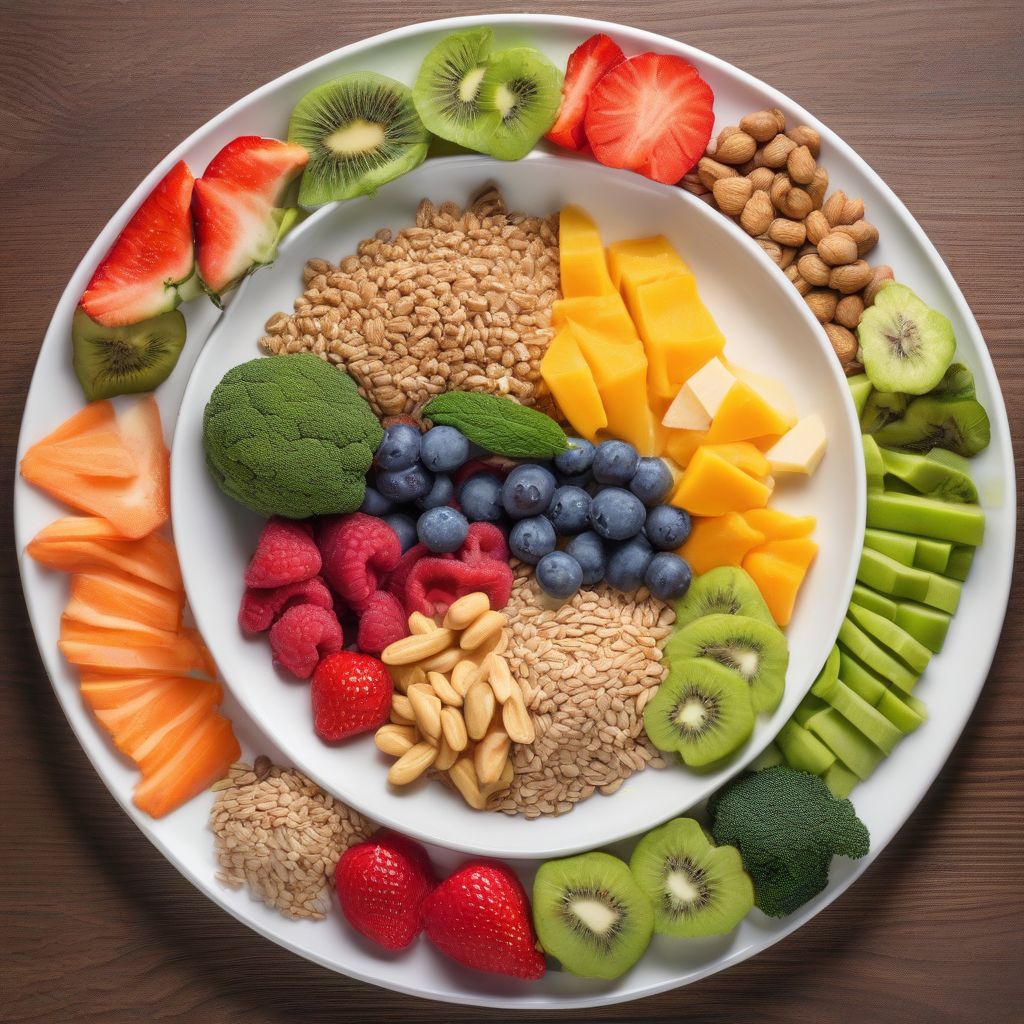“Give a man a fish, and you feed him for a day. Teach a man to fish, and you feed him for a lifetime.” This proverb highlights the importance of sustainable solutions, and it holds true even when we talk about the role of nutrition in early childhood development. Providing a child with a healthy diet isn’t just about filling their tummies; it’s about building a strong foundation for their physical and cognitive development that will last a lifetime.
The Building Blocks: Why Nutrition Matters So Much in the Early Years
The first few years of a child’s life are a period of incredible growth and development. Their brains are forming new connections at an astounding rate, their bodies are growing rapidly, and their immune systems are still developing. It’s during this critical period that proper nutrition plays a vital role in shaping their present and future health.
Fueling the Growing Brain: Cognitive Development and Beyond
Imagine a house under construction. Just like a house needs strong bricks and mortar, a child’s developing brain needs a constant supply of essential nutrients to build and strengthen its complex neural networks.
- Omega-3 Fatty Acids (DHA and EPA): Found in fatty fish, flaxseeds, and chia seeds, these essential fats are crucial for brain development, cognitive function, and visual acuity.
- Iron: A key component of red blood cells, iron carries oxygen to the brain and other organs. Iron deficiency in early childhood can have long-term impacts on cognitive development, learning, and behavior.
- Choline: This essential nutrient, found in eggs, meat, and fish, plays a vital role in brain development, memory, and learning.
A Strong Body in the Making: Physical Growth and Development
Good nutrition isn’t just about brainpower; it’s also the cornerstone of healthy physical growth and development.
- Protein: The building blocks of the body, protein is essential for building and repairing tissues, producing enzymes and hormones, and supporting healthy growth.
- Calcium and Vitamin D: This dynamic duo work together to build strong bones and teeth, preventing future risks of osteoporosis and fractures.
- Zinc: This mighty mineral plays a critical role in cell growth and division, wound healing, and a healthy immune system.
 Healthy Food for Kids
Healthy Food for Kids
Building a Fortress: The Role of Nutrition in Immunity
A robust immune system is a child’s best defense against infections and illnesses.
- Vitamins A, C, and E: These powerful antioxidants help protect cells from damage, support a healthy immune system, and may reduce the risk of chronic diseases later in life.
- Probiotics: Found in yogurt, kefir, and fermented foods, probiotics introduce beneficial bacteria into the gut, which plays a crucial role in supporting a healthy immune system.
The Long-Term Impact: Setting the Stage for a Healthier Future
The nutritional choices we make for our children in their early years have a ripple effect that extends far beyond childhood.
- Reduced Risk of Chronic Diseases: A healthy diet in early childhood can lower the risk of developing chronic diseases such as obesity, type 2 diabetes, heart disease, and certain types of cancer later in life.
- Healthy Weight Management: Establishing healthy eating habits early on can help children maintain a healthy weight throughout their lives, reducing the risk of obesity-related health problems.
- Improved Academic Performance: Studies have shown a strong link between good nutrition and improved academic performance, including better concentration, memory, and problem-solving skills.
FAQs: Addressing Common Concerns About Early Childhood Nutrition
1. My child is a picky eater. What can I do to ensure they are getting the nutrients they need?
Picky eating is a common concern among parents, but don’t despair! There are many ways to encourage healthy eating habits:
- Offer a variety of foods: Keep introducing new foods alongside familiar favorites.
- Be patient and persistent: It may take multiple attempts for a child to accept a new food.
- Make mealtimes fun: Create a positive and enjoyable eating environment.
- Involve your child in meal planning and preparation: Children are more likely to try foods they helped prepare.
2. Are there any specific foods I should avoid giving my child?
- Sugary drinks: Sodas, fruit juices, and sports drinks offer empty calories and can contribute to tooth decay and weight gain.
- Processed foods: These foods are often high in sodium, unhealthy fats, and added sugars.
- Fast food: Limit fast food consumption as it’s typically low in nutrients and high in unhealthy ingredients.
3. What are some good sources of calcium for children who don’t like milk?
Calcium is crucial for strong bones and teeth. If your child doesn’t like milk, try these alternatives:
- Fortified plant-based milk: Soy milk, almond milk, and other plant-based options are often fortified with calcium.
- Yogurt: Yogurt is a good source of calcium and probiotics.
- Cheese: Cheese can be a tasty way to boost calcium intake.
- Leafy green vegetables: Some leafy greens like kale and spinach contain calcium.
Conclusion: Investing in a Healthier Future, One Bite at a Time
The role of nutrition in early childhood development cannot be overstated. It’s an investment in a child’s present and future health, shaping their physical growth, cognitive abilities, and overall well-being. By providing children with nutrient-rich foods and fostering healthy eating habits, we empower them to thrive and reach their full potential.
Do you have any tips or tricks for encouraging healthy eating habits in children? Share your thoughts and experiences in the comments below! Let’s work together to build a generation of healthy and happy kids!
[amazon bestseller=”childrens’ nutrition books”]
